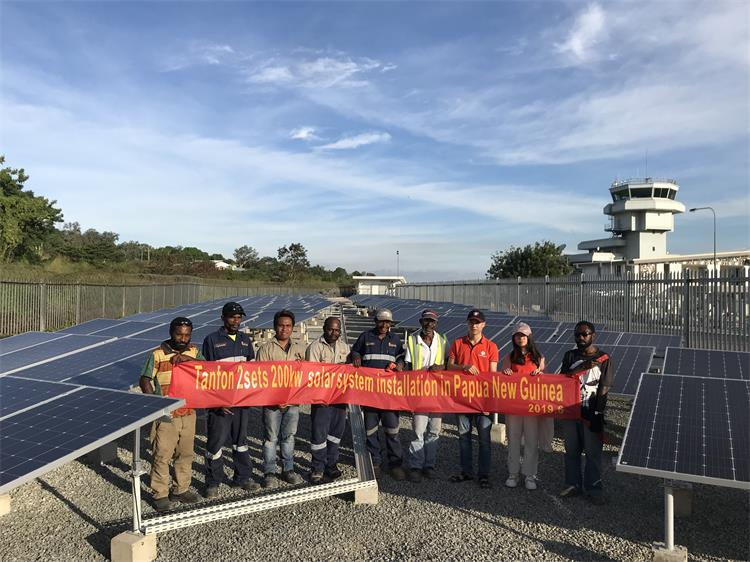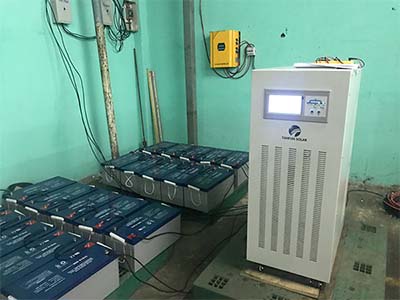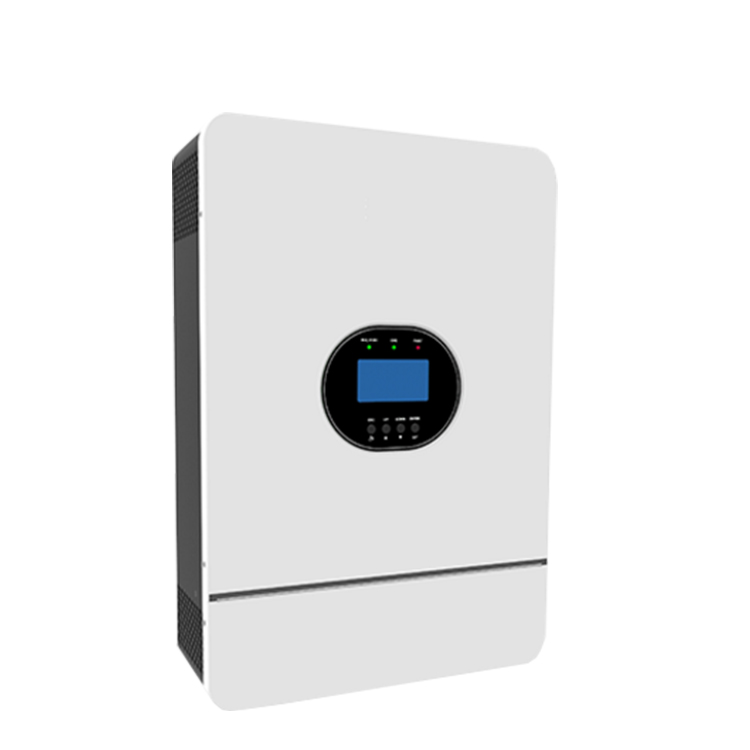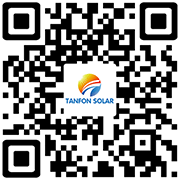 TANFON SOLAR
TANFON SOLAR
 November 16,2023
November 16,2023
Introduction
In a world where energy independence is becoming increasingly crucial, the intersection of smart homes and solar generators presents a promising solution. This article delves into the future landscape of energy independence, focusing on the integration of solar generators within smart homes.
Importance of Energy Independence
The quest for energy independence is not merely a technological trend but a necessity. As traditional energy sources face challenges, the need to explore sustainable alternatives becomes imperative.
Rise of Smart Homes
Smart homes, equipped with cutting-edge technologies, are becoming more prevalent. The seamless integration of smart devices demands a reliable and sustainable energy source, setting the stage for the prominence of solar generators.
Understanding Solar Generators
How Solar Generators Work
Solar generators harness the power of the sun, converting sunlight into electricity through photovoltaic cells. This process ensures a continuous and eco-friendly energy supply.
Components of Solar Generators
Comprising solar panels, inverters, and energy storage systems, solar generators form a comprehensive solution for clean energy production and storage.
Advantages of Solar Generators
The benefits range from reduced electricity bills to a lower environmental impact. Solar generators offer a reliable and efficient source of energy, contributing to a more sustainable lifestyle.
Integration in Smart Homes
Smart Home Energy Management
Solar generators seamlessly integrate into smart home energy management systems, allowing for optimal utilization of solar-generated power and efficient distribution throughout the home.
Benefits of Solar Generators in Smart Homes
The synergy between solar generators and smart homes results in increased energy efficiency, cost savings, and a reduced carbon footprint. This section explores the multifaceted advantages.
Overcoming Challenges
While the integration of solar generators in smart homes presents numerous benefits, challenges such as intermittent sunlight and initial costs need strategic solutions. This article addresses these hurdles.
Environmental Impact
Clean Energy Contribution
Solar generators play a pivotal role in reducing reliance on fossil fuels, contributing to a cleaner energy mix and mitigating environmental degradation.
Reducing Carbon Footprint
The environmental benefits extend to a significant reduction in carbon emissions, aligning with global efforts to combat climate change.
Sustainable Living
Embracing solar generators aligns with the ethos of sustainable living, offering individuals the opportunity to actively participate in environmentally friendly practices.
Technological Innovations
Latest Solar Generator Technologies
The technological landscape of solar generators is dynamic, with continuous innovations enhancing efficiency, storage capacity, and overall performance.
Smart Grid Integration
The integration of solar generators into smart grids facilitates a more adaptive and responsive energy distribution network, promoting a resilient and interconnected system.
Remote Monitoring and Control
Technological advancements allow homeowners to monitor and control their solar generators remotely, providing real-time insights into energy production and consumption.
Economic Considerations
Initial Investment
While the initial cost of installing solar generators may seem daunting, the long-term economic benefits, including reduced energy bills and potential government incentives, make it a worthwhile investment.
Long-term Cost Savings
The economic viability of solar generators becomes evident over time, with homeowners experiencing substantial savings on energy costs and contributing to the overall economic efficiency of the energy sector.
Government Incentives
Government initiatives and incentives further encourage the adoption of solar generators, creating a supportive environment for individuals and businesses to invest in sustainable energy solutions.
Overcoming Perplexities
Addressing Common Concerns
Common concerns about the reliability and efficiency of solar generators are addressed, providing clarity and dispelling misconceptions.
Clarifying Misconceptions
Misconceptions surrounding the complexity and maintenance of solar generator systems are clarified, ensuring that potential adopters are well-informed.
Ensuring Reliability
Strategies and technologies are discussed to enhance the reliability of solar generators, making them a dependable source of energy for smart homes.
Burstiness in Adoption
Increasing Popularity
The increasing popularity of solar generators reflects a growing awareness of their benefits, driving a surge in adoption rates among homeowners.
Growing Market Demand
The market demand for solar generator systems is burgeoning, with manufacturers striving to meet the demand by introducing innovative and efficient solutions.
Innovations Driving Adoption
Continuous innovations in solar technology play a crucial role in driving adoption, making solar generators more accessible, efficient, and attractive to a wider audience.
Real-life Smart Home Examples
Case Studies of Solar-Integrated Smart Homes
Real-life examples showcase the successful integration of solar generators in smart homes, highlighting the practical benefits and experiences of homeowners.
User Experiences and Testimonials
The firsthand experiences of individuals who have embraced solar generators in their smart homes provide valuable insights into the day-to-day advantages and challenges.
Lessons Learned
Examining the lessons learned from early adopters helps future homeowners make informed decisions, fostering a community of shared knowledge.
The Role of Governments and Policies
Supportive Policies
Governments worldwide are implementing policies that support the transition to renewable energy, creating an environment conducive to the widespread adoption of solar generators.
Government Initiatives
Initiatives such as tax incentives, rebates, and grants further motivate individuals and businesses to invest in solar generators, fostering a sustainable energy landscape.
Future Regulatory Landscape
Anticipating the evolving regulatory landscape is essential for stakeholders, ensuring that policies align with technological advancements and the growing needs of society.
The Challenges Ahead
Technological Challenges
As the demand for solar generators increases, addressing technological challenges, such as storage capacity and efficiency, becomes paramount for sustained growth.
Economic Considerations
Balancing the economic considerations of both initial investments and long-term savings is a challenge that requires collaboration between governments, businesses, and consumers.
Public Awareness
Educating the public about the benefits and practicalities of solar generators is crucial for overcoming resistance and fostering widespread acceptance.
The Human Touch in Sustainable Living
Empowering Individuals
Solar generators empower individuals to actively participate in the transition to sustainable living, promoting a sense of responsibility and environmental stewardship.
Community Initiatives
Community-driven initiatives create a collective impact, with neighborhoods and communities coming together to embrace solar energy and reduce their carbon footprint.
Collective Responsibility
Recognizing the collective responsibility for a sustainable future, individuals, communities, and businesses collaborate to create a cleaner and more resilient energy landscape.
Conclusion
In conclusion, the future of energy independence is intricately linked to the adoption of solar generators in smart homes . Embracing this technology is not only a step towards personal energy efficiency but also a collective effort towards a sustainable future.
FAQs
-
How efficient are solar generators for smart homes?
Solar generators are highly efficient, providing a reliable and sustainable source of energy for smart homes. The efficiency depends on factors such as sunlight availability and the quality of the solar generator system.
-
What is the lifespan of solar generator systems?
The lifespan of solar generator systems varies but is generally around 20 to 25 years. Regular maintenance and proper care can extend the life of the system.
-
Are there any maintenance requirements for solar generators?
Solar generators require minimal maintenance, primarily involving cleaning the solar panels and ensuring the integrity of the system. Routine check-ups by professionals may be advisable.
-
How do solar generators contribute to energy independence?
solar generators harness sunlight, a renewable resource, reducing dependence on traditional energy sources. This contributes to energy independence by providing a sustainable and eco-friendly alternative.
-
What government incentives are available for adopting solar generators?
Government incentives may include tax credits, rebates, and grants to encourage the adoption of solar generators. The specific incentives vary by region, so it's essential to research local policies.












